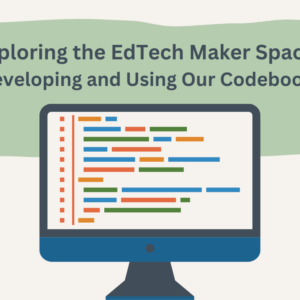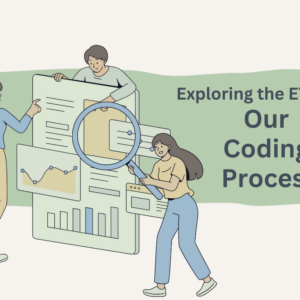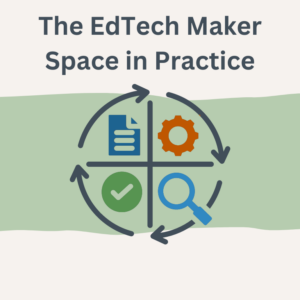By Priyanka Sharma, Catalina Gonzalez, Nicole Cabrera Holguin and Panote Nuchprayoon
Keys to Impact in Digital Navigator Services: Adaptability, Trust, and Awareness, a three-part blog series is a collaboration between the EdTech Center and the ExCITe Center at Drexel University to give voice to digital navigator programs that have rapidly innovated over the last year. Each blog features one of three components programs have identified as key to success in closing digital divides and digital, racial, and other inequities: Adaptability, Trust, and Awareness.
Over the last year the EdTech Center @ World Education, with funding from Walmart, has supported organizations across the country to pilot digital navigator services, providing adults with just-in-time supports for technology access and foundational digital skills. With input from Digital US partners, it has developed a digital navigators playbook and a hub for digital inclusion resources.
Digital navigators support individuals with their needs for device and internet access and the development of digital skills to accomplish their goals online. Building trust is critical to the provision of digital navigator services as many recipients of services show hesitancy with technology and with seeking help.
Developing trust with a client can be difficult, especially with clients who experience systemic racism. The Equity in Education Coalition (EEC) in Washington state collaborates with multiple institutions community members already trust to accomplish this. Many organizations—including EEC—were giving out PPE, hand sanitizer, and other essentials in order to help the communities during the pandemic. Therefore, once these trusted organizations integrated the Digital Navigator Program into their systems, individuals were not hesitant to seek support to get access to and start using devices and the internet to meet their goals.
Literacy Minnesota has been a pilot partner in the Digital Navigator: Connect to Opportunity project. At first, they used site coordinators for giving out devices and providing initial navigation before the handoff to digital navigators. Eventually, a dedicated digital navigator and a bilingual digital navigator/digital skills instructor were placed at Literacy Minnesota, which streamlined the process and made the experience for learners like Saadiyo more consistent. Saadiyo wasn’t able to access remote classes because the family only had one computer, and her kids needed to use it for school. Literacy MN was able to provide her with a device, but she needed help setting it up, connecting it to wifi, etc. The digital navigator configured the device with preset bookmarks that Saadiyo needed for class, delivered the laptop to her, walked her through set up, made sure the internet was connected, and showed her how to find the tabs she needed to attend class. Now Saadiyo’s children aren’t the only ones in the family able to access education!
Even though using trusted institutions helps, it is essential that the Navigators must be welcoming and empathetic. Katherine Keegan, the Director of the Office of the Future of Work in Colorado, has done her fair share of research on Digital Navigator programs as she advocates for digital inclusion. When asked what are vital components to creating a sustainable Digital Navigator program, Keegan mentioned trust and empathy as key components. She explained that trust can be built by using a trusted institution to run the Digital Navigator program. This means integrating the Digital Navigator program into an organization that already helps the community since there is a relationship already present, such as at a library. She also emphasized the importance of a Navigator who is empathetic as if the Navigator isn’t, it is difficult for the client to feel comfortable and more likely that their challenge will go unresolved.
Maria Lara works for Free Geek, a nonprofit organization in Portland, Oregon advancing digital inclusion. Lara has many responsibilities, including supporting clients throughout the process of receiving a free, refurbished computer– from filling out the application to handing/delivering the computer. After asking her what keeps her motivated to continue as a Digital Navigator, she commented that she loves helping people, connecting with those in the community from different backgrounds. As she continues to help the community, the community has been helping her. She stated how she grew to be more empathetic as she became more aware of the Digital Divide, an issue that Digital Navigators across the country are working passionately to close.
Part III: Awareness of Services & Impact
This three-part blog series is based in part on interviews conducted by digital navigators Nicole Cabrera Holguin and Panote Nuchprayoon who are Co-op Workgroup students at Drexel University’s ExCITe Center working to inspire transdisciplinary research, discovery, and learning connecting technology and communities.
Digital Navigators: Connect to Opportunity project is supported by a generous grant from Walmart.




